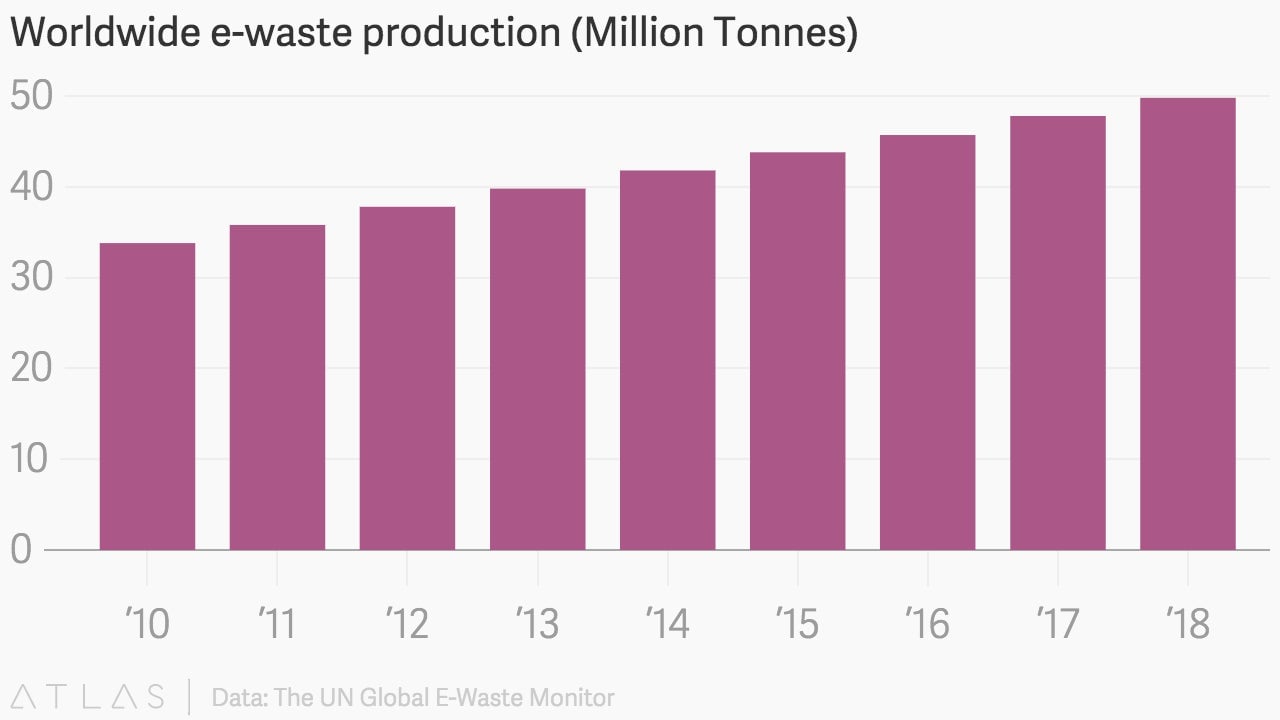Wood-based computer chips could be the answer to the electronic waste crisis
Wood-based computer chips are a reality, and they could make the recycling of electronics a much simpler task.


Wood-based computer chips are a reality, and they could make the recycling of electronics a much simpler task.
Developed at the University of Wisconsin by a group led by engineering professor Zhenqiang (Jack) Ma, the wood-derived computer chip is made by processing wood into nanocellulose paper, which is then used as a substitute for a silicon. Unlike the rigid silicon wafer that serves as a plate for transistors in most computer chips, Ma’s chip uses a translucent, bendable plate made of highly processed wood. According to a piece in the MIT Technology Review, using nanocellulose in lieu of conventional silicon requires just a tiny fraction of the semiconducting material otherwise needed in the process, and doesn’t sacrifice performance:
In two recent demonstrations, Ma and his colleagues showed they can use nanocellulose as the support layer for radio frequency circuits that perform comparably to those commonly used in smartphones and tablets. They also showed that these chips can be broken down by a common fungus.
The military, the MIT publication notes, has had an interest in electronics that could rapidly decay to avoid leaking sensitive information; but Ma’s ambition for biodegradable chips is mainly to help combat electronic waste.
A cell phone’s shelf-life is under two years, meaning that “old” mobile phones are constantly being thrown away. Ma told the MIT Technology Review that his research was guided by concern over this phenomenon: “What’s happening to all those waste streams?”
What’s often happening is that unloved gadgets get dumped in poorer countries. A United Nations University report (pdf) from 2013 on electronic waste found that developed countries have been exporting old laptops and other devices, sometimes illegally, to West African countries like Ghana and Nigeria. In 2013, Interpol seized 240 tones (264.6 tons) of electronic equipment leaving the EU destined for Africa.
Given the region’s little experience in the proper disposal of electronics, recycling activities in Africa can devolve into open fires in dumpsters and landfills, creating “electronic graveyards.” The UN projects that this trend will worsen as devices become cheaper and more accessible.

Theoretically, much electronic waste could be recycled, saving copper, zinc, and gold to make more gadgets in the future. Certainly consumers in the developed world are already familiar with the general idea of recycling.

But recycling electronics is not as simple as tossing a soda can in a blue bin. In the US, state rules often require recyclers to haul cumbersome devices to electronics stores, and about half of US states don’t have legislation to regulate the recycling of electronic waste.
Ma’s wood-derived chips might someday make our electronics faster or cheaper, but more helpfully, they might address the growing problem of disposing all of our electronic junk.